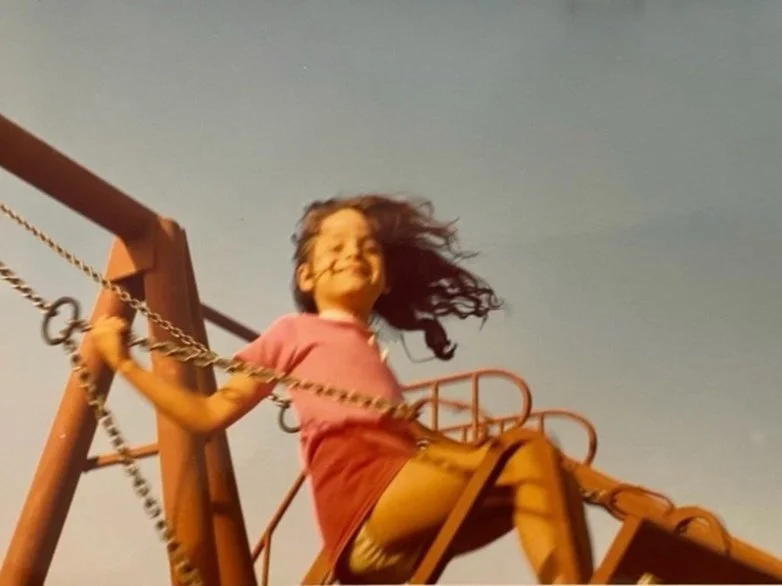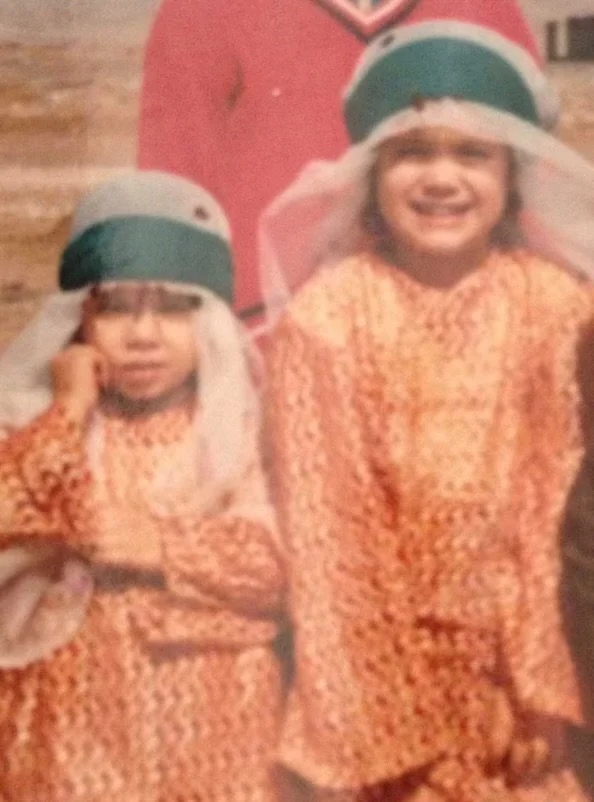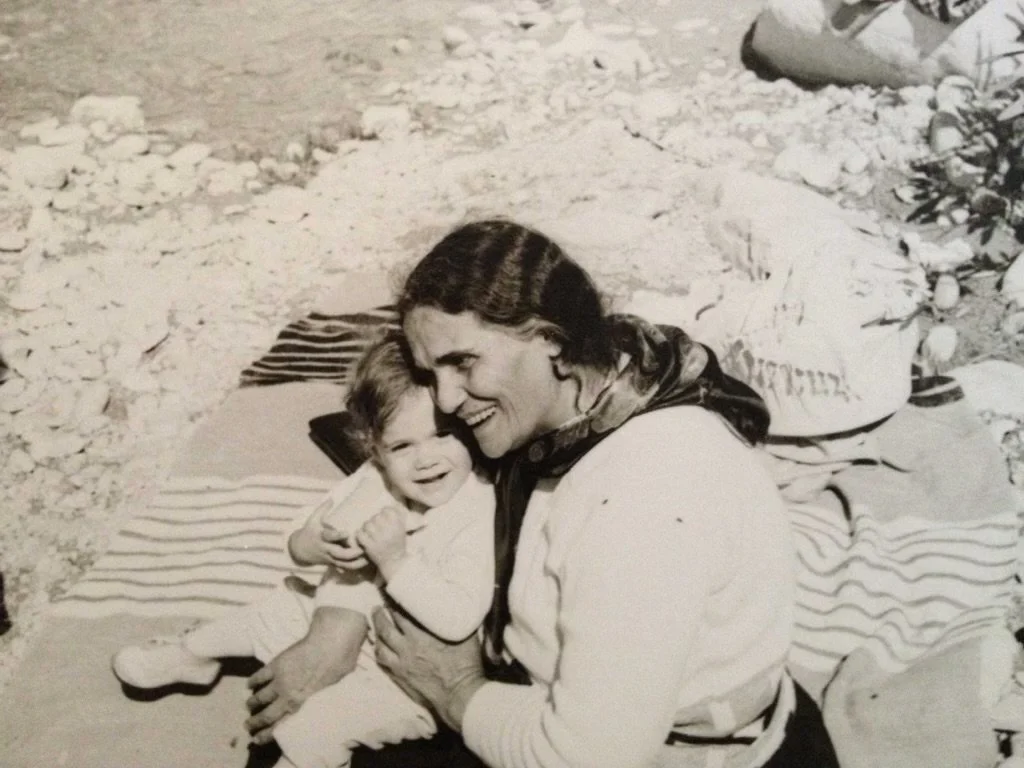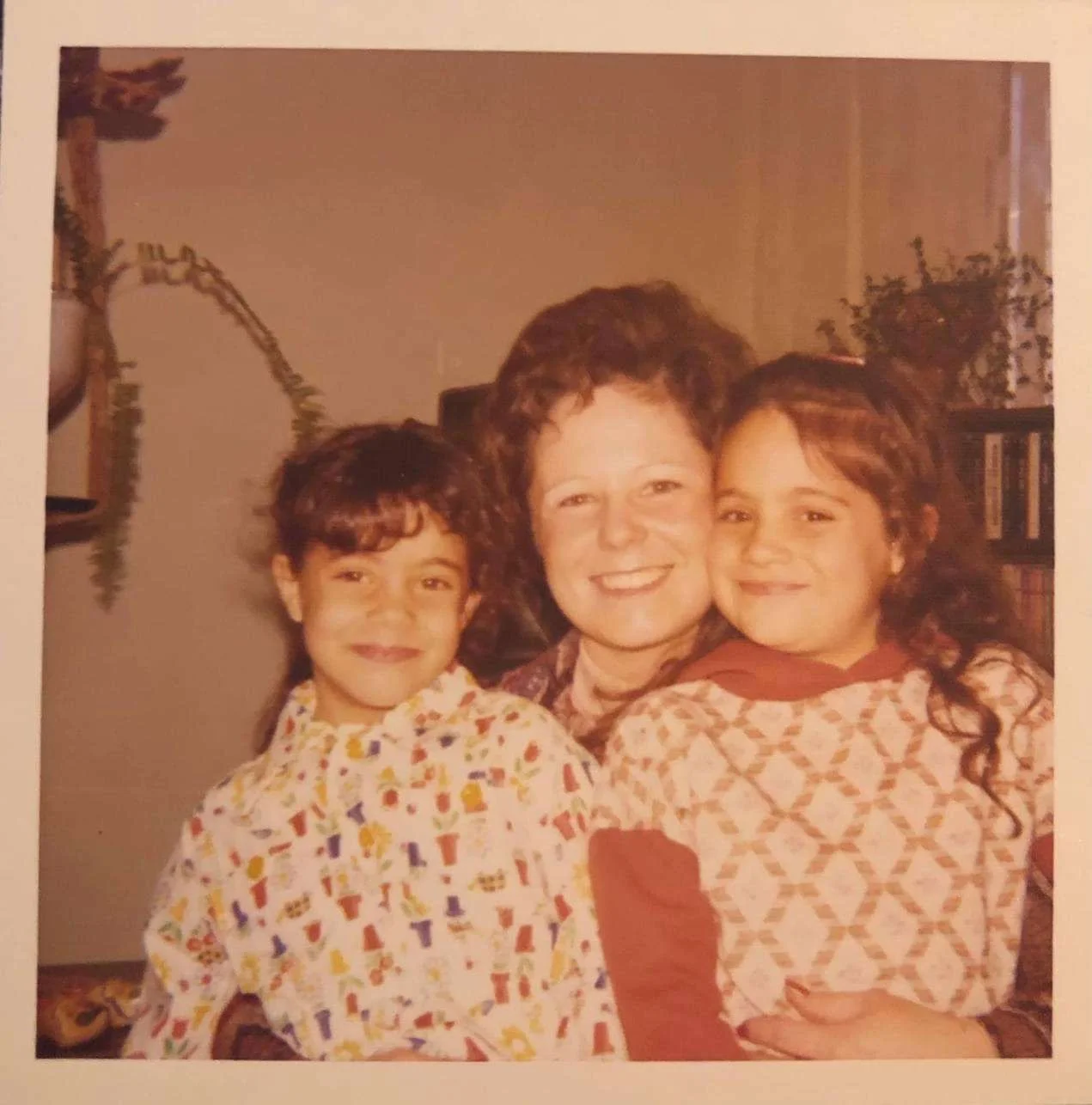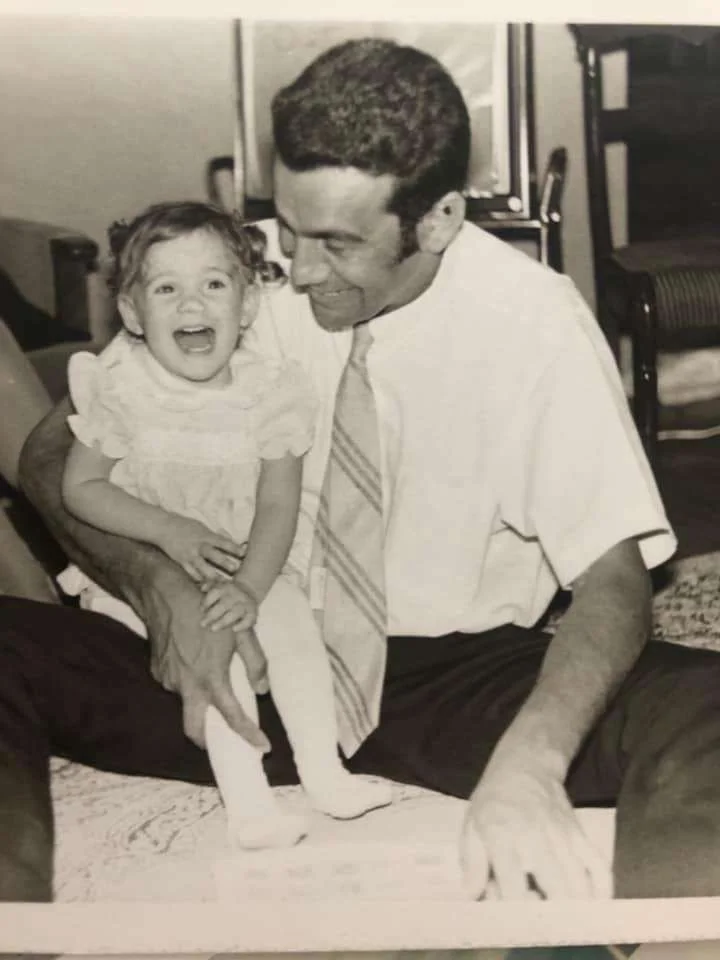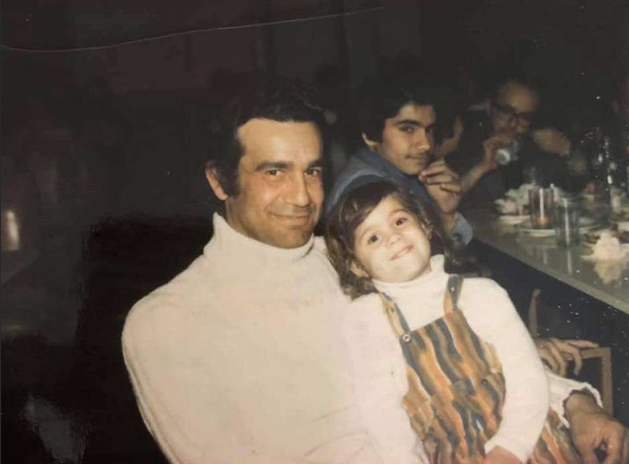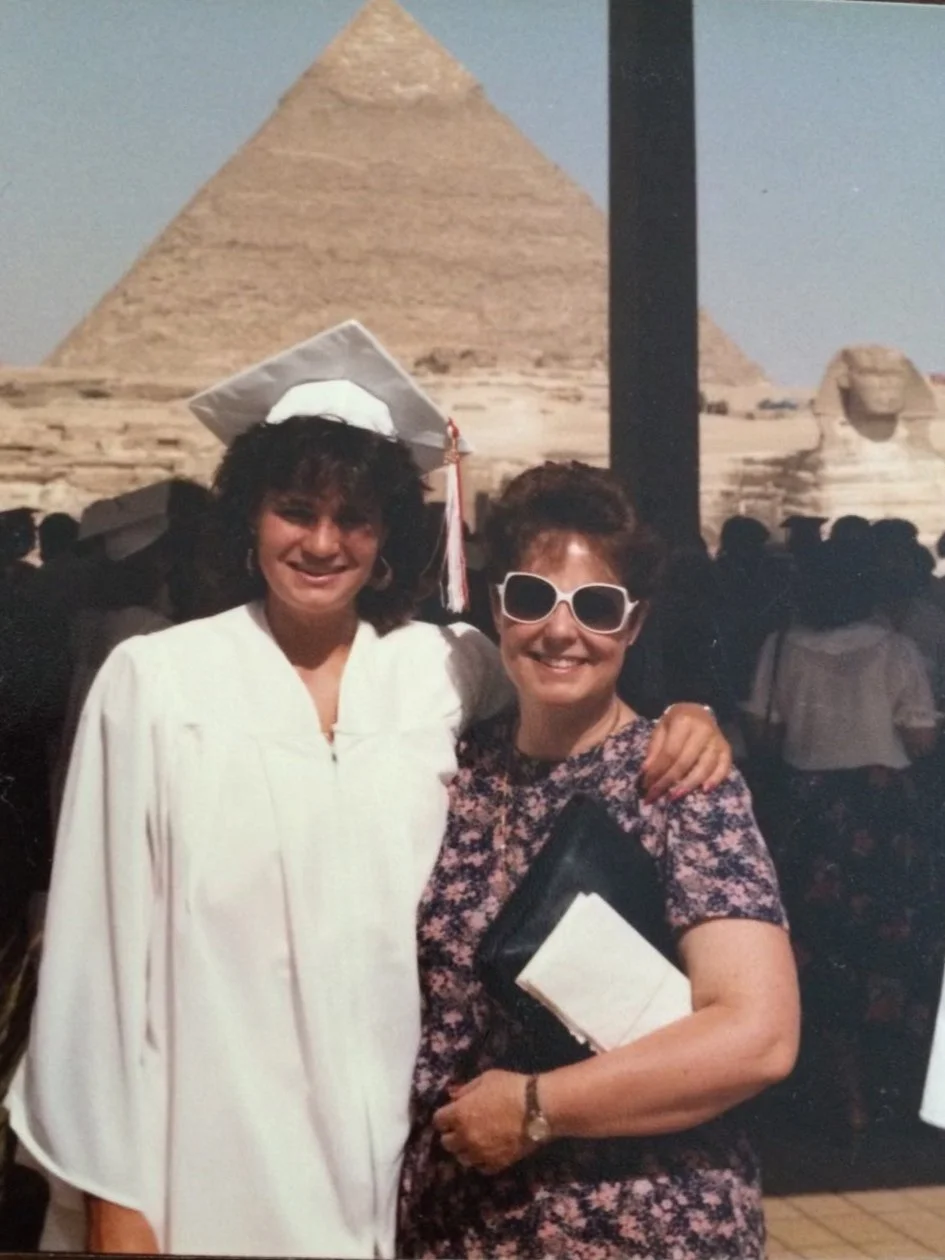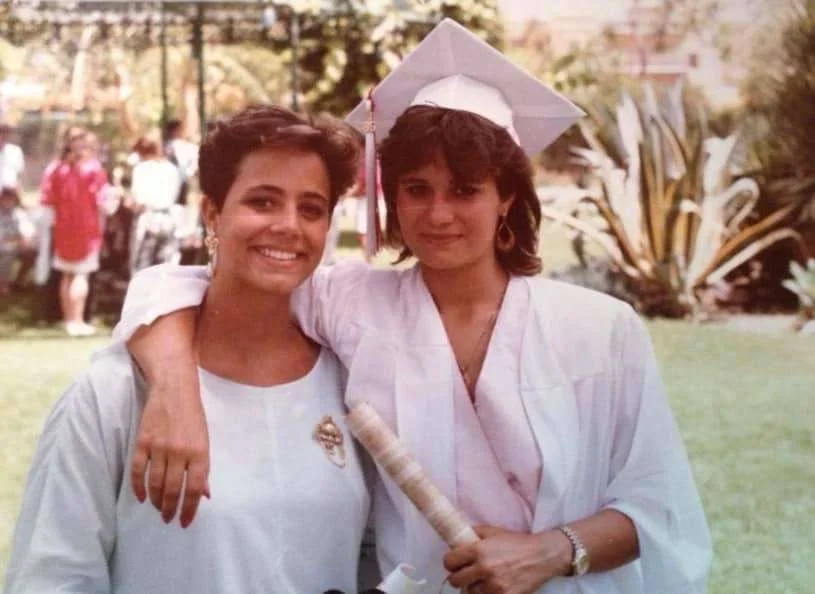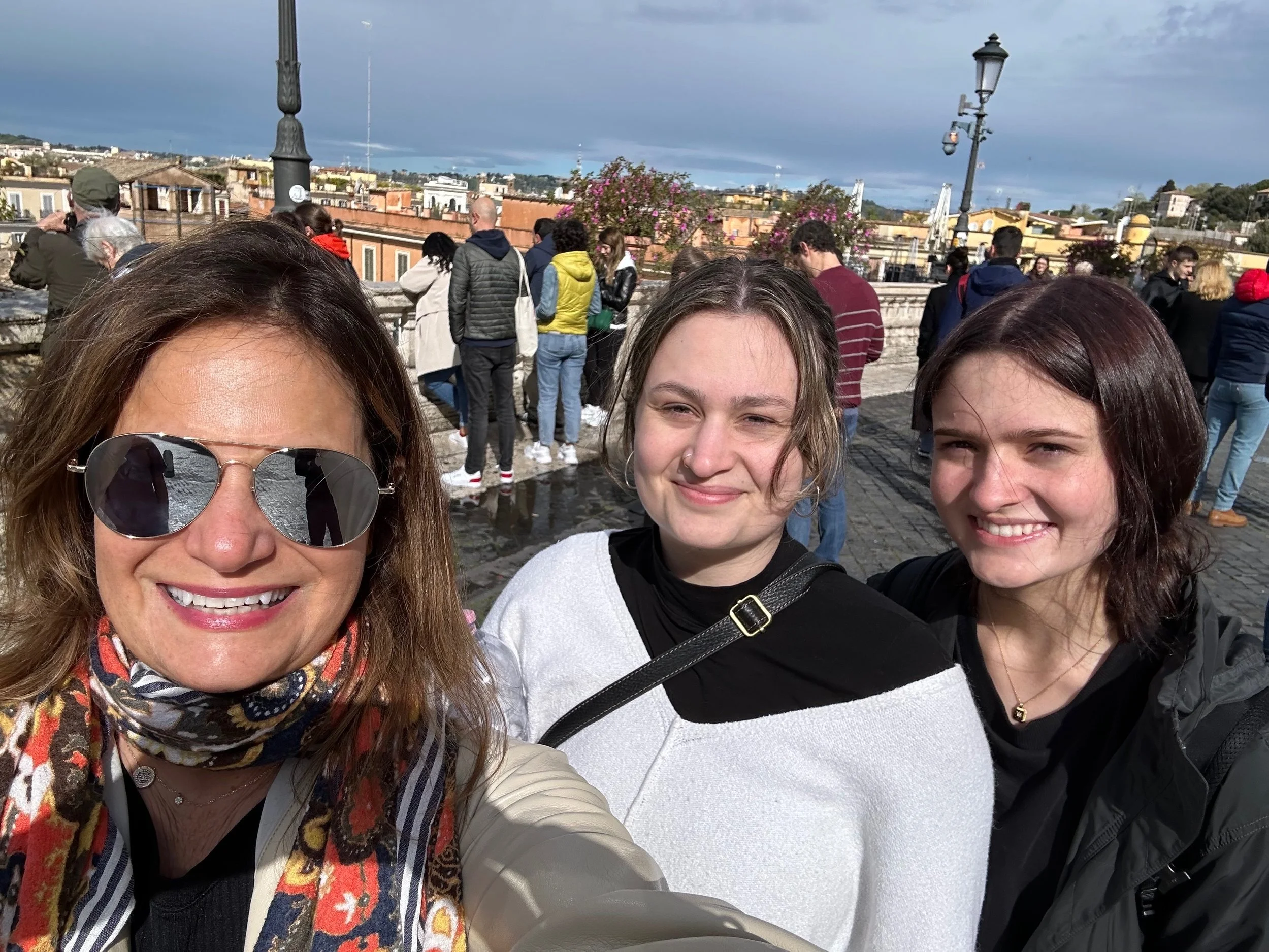Finding Comfort in Travel After Escaping The Iranian Revolution
Finding Comfort in Travel After Escaping The Iranian Revolution
BY: Ella McDonnell
Yasemin Herlihy was 10 years old when she watched riots burst and fires set in her neighborhood and outside her school. In 1979, a terrified girl in Iran had her life take an alarming turn as she saw the start of the Iranian Revolution.
“The revolution started, almost, it seemed like overnight, there were people outside our school every day burning things like cars,” Herlihy said.
Her family fled Iran. First moved to California, then to Egypt from 1983 to 1986. Until she arrived in California for college, she returned only to Egypt for holidays and summers until 1988.
Now 55 years old, Yasemin Herlihy of Walpole, Massachusetts is a wife and mother to three daughters. She describes herself as a ‘third culture kid –’ an American-born daughter of an American mother and an Iranian father who all moved to Iran when she was a baby.
By the time she entered fifth grade, it became “dangerous to go to school, each classroom would go to someone’s house,” she said. This lasted for months.
“The U.S. Embassy called us and said, ‘If you don’t leave now, we can’t be in charge of your safety anymore.’” So her dad drove Yasemin, her sister, and her mother to the airport to take the first flight out.
When the three of them left, they went to San Jose, California where her mother’s parents lived. She finished out her fifth-grade year there. Her father not only refused to leave the life he had built in hopes that it would be safe again soon, but he also was not a green card holder.
“My Dad wouldn’t leave Iran. So my mom took us back and we spent several months there up until right before the hostage crisis,” says Herlihy.
With the intensity of the travel experiences she endured, she finds that her travels made her who she is today and played a large role in her views of the world she carries and teaches her daughters.
“It gives you a different perspective on the world. It makes you think of all people just as people,” says Herlihy. “I don't see a difference between someone being born in one country versus being born in another. You have no control over it. You're just born. We're all human beings.”
A deep understanding of the differences between other countries and cultures is quite only found when one experiences these locations firsthand. Traveling draws that natural human sense of curiosity and unconscious comparison of someone else’s home to your own.
The hostage crisis in Iran began in 1979 when 66 Americans were seized from the United States Embassy in Tehran and most were held hostage for more than a year. This ruined United States relations with Iran for decades.
This situation made it again unsafe for her family to return. There was an expectation that the United States was going to get involved in these socio-political outbursts and a hope that their home would soon be safe again.
Everything they ever had and knew was in Iran, so her father stayed with it. “When we all did leave Iran, my dad was in his 40s, he was very successful. But we left with like $20,000, our suitcases, and two Persian carpets. That’s it,” she said. “He lost everything.”
Before leaving, they had acquired land on the Caspian Sea with plans to build a house up there. Her father worked in the cement industry and had many connections to Europe that he would later use to rebuild his life a bit in Egypt.
The Iranian Revolution began in January 1978 and lasted for about a year. She then finished her fifth grade school year in 1979 in San Jose, where her mother was from. After the crisis crushed all hopes of returning to Iran, her family moved to Egypt with her father’s plans to find new success there.
Her father found himself hired as an engineer with a consulting company. They sent him to Cairo, where he brought his family to live for about three years.
Yasemin, her mother, and her sister would return to the United States every end of May to spend the summer there with her grandparents while her father stayed in Egypt to work. She fondly remembers traveling around California and some of the U.S. each summer.
They also visited Europe at the end of most summers on their way back from the States. Most memorable for Herlihy was traveling throughout Europe on the way back from Iran after the revolution.
“We decided we would take a whole month, my family traveled in Europe just because everybody was so burnt out, we traveled to Rome, Paris, and some of Germany, on our way back from Iran,” says Herlihy.
Escaping places that hold dark memories to explore new or familiar places can help manage grief, loss, tragedy, mental health challenges, or trauma.
https://www.afar.com/magazine/how-travel-can-improve-our-mental-health
Traveling at a young age became a stress-release method for her and her family that she never let go of. This sort of reset by travel helped her family grow together and individually.
Kathy Barthelmes, 57 of California, Maryland, describes her mission trip visits to Guatemala as experiences that “were able to open my eyes to an interest and kind of fascination in culture and how disparagingly different our cultures were.”
“I think it also developed a love for language which I had never had as a young adult per se,” says Barthelmes. “I just got fascinated to be able to communicate with other people groups even in the U.S. It's very helpful.”
She currently co-leads and coordinates a team of nine people who work directly with an all-girls orphanage in Guatemala. Barthelmes is also in the process of creating and designing a separate non-profit there to work with young adults who are leaving institutions and orphanages to help them get on their feet.
“And it completely changed my perspective of the world. It broadened it, it helped me to start asking questions and not making assumptions. I was able to break down stereotypes. I had exposure to different classes of people that I hadn’t had before,” says Barthelmes.
At any age, through direct exposure to these countries and people, expectations are demolished and differences are identified yet minimized.
Herlihy graduated from high school in Egypt and attended college at the University of San Francisco in California.
“I certainly have trauma in that, yeah, but the first place I wanna go if I could, would be to go back there (to Iran) because that was my home,” says Herlihy.
Travel – when not an exile – can play a large role in boosting mental health effects such as grief, trauma, or even anxiety. In a research piece created by AFAR travel magazine, interviews with individuals who underwent experiences that left them broken, confided in travel to help them move forward.
Travel holds the ability to lower stress and anxiety, improve relationships and connectedness, and also boost creativity by trying new food, culture, and arts.
“I just got really tired of seeing the same scenery,” says Sarah Ascuitto, a study abroad student at Plymouth State University. “When I got on the plane coming back, I knew everything was just never going to be the same. I don’t find myself reaching that level of happiness and excitement here like I had there.”
Looking at travel more deeply, it has been found that it can have a heavy impact on an individual’s overall life satisfaction.
Trip events contribute to different aspects of human satisfaction such as social life satisfaction, love life, and work life that overall showed to correlate largely to overall life satisfaction according to a 2016 study published in The Journal of Travel Research.
https://journals.sagepub.com/doi/10.1177/0047287510362784
“Life satisfaction can be determined not only from work life. Yes, work life is important. But family life is also important. Leisure life is important. Social life is important. Community life is important,” said Joseph Sirgy, Associate Professor of Marketing at Virginia Tech University and co-author of the study. Sirgy studies travel and tourists’ wellbeing and community quality of life.
“Satisfaction comes from multiple domains, and the more domains that you can extract satisfaction from, the better off you are in terms of your own personal well-being.”
Through many aspects of life, satisfaction will be immensely affected, in this case, travel does to a large extent. In his research, travel can allow an individual to feel free from work and control of their home lives. This freedom contributes to a feeling of satisfaction because it allows the person to feel separated from their work with the idea that life is so much larger than their job.
“The data suggested that both positive and negative effects played a strong role in influencing and determining how people felt about their social life in the context of that trip and ultimately how overall satisfaction with social life determined how people feel about their life at large,” said Sirgy.
He explains that an individual having an imbalanced life undermines the complete life satisfaction and happiness of an individual.
Anna Kelly, a college student when the COVID-19 pandemic hit, found her life at an extensive imbalance with the removal of the majority of her social life and a complete removal of travel opportunities.
“Traveling, I feel like you learn things that you keep with you because they're tethered to experiences that you have in those places that you learn them,” Kelly explains how she finds growth in travel experiences.
“And I just think that is something that everybody should experience and look for, honestly, because putting yourself in unfamiliar places, especially as well as just other cultures in general," says Kelly. “Kind of put the spotlight on how you act and who you are because you have to examine that against people and places that are unfamiliar and not within your comfort zone.”
In a way, the opposite of life satisfaction, there is regret. Regret is the notion of having a “negative emotional reaction to a past action” or to a lack of action that is later perceived to have happened according to a piece in the Journal of Applied Psychology.
https://www.jstor.org/stable/26813099
It is common for people to look back on events or experiences, or even their lives as a whole with a wonder of whether or not things should have been different.
Regret has not yet been applied much to traveling in a sense where research is done to find if it is common for people to regret not traveling more or at all. This concept connects substantially to the link between travel and life satisfaction.
“No, I want to see more of the world. I think travel is one of those things that you do and then it's in your blood,” says Herlihy.
Herlihy raises her daughters with the encouragement to see the world and explore all that it has to offer. She has found herself in the travels she’s had and finds no regret or need to change her past but is inspired to continue to see the world.
She longs to return to Iran and show her family the first place she called home.

